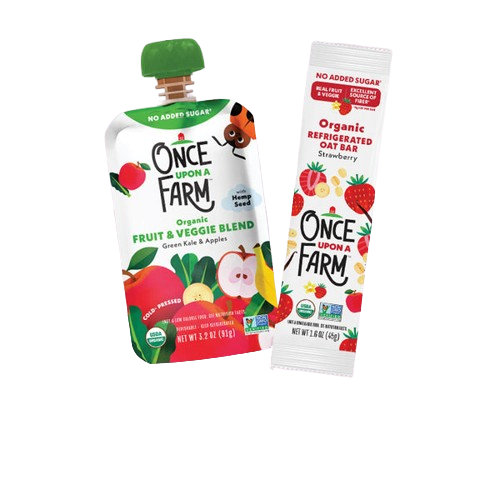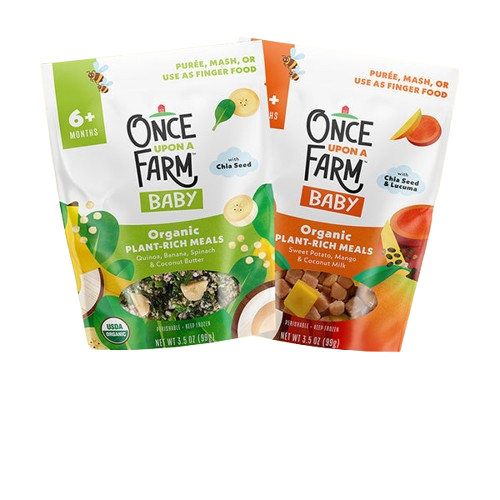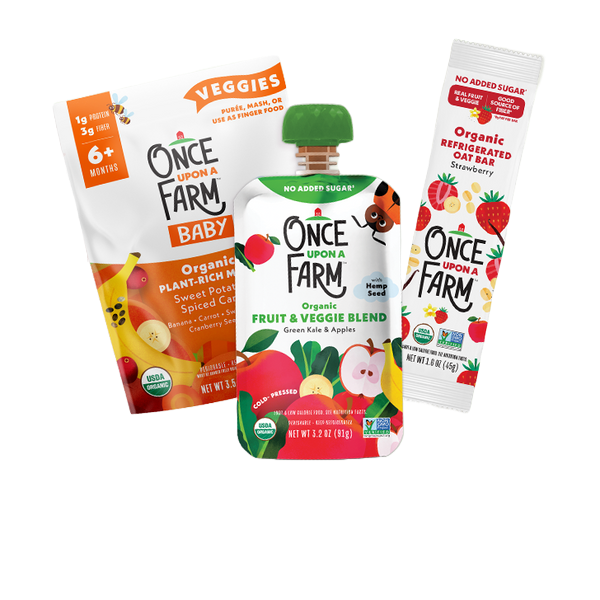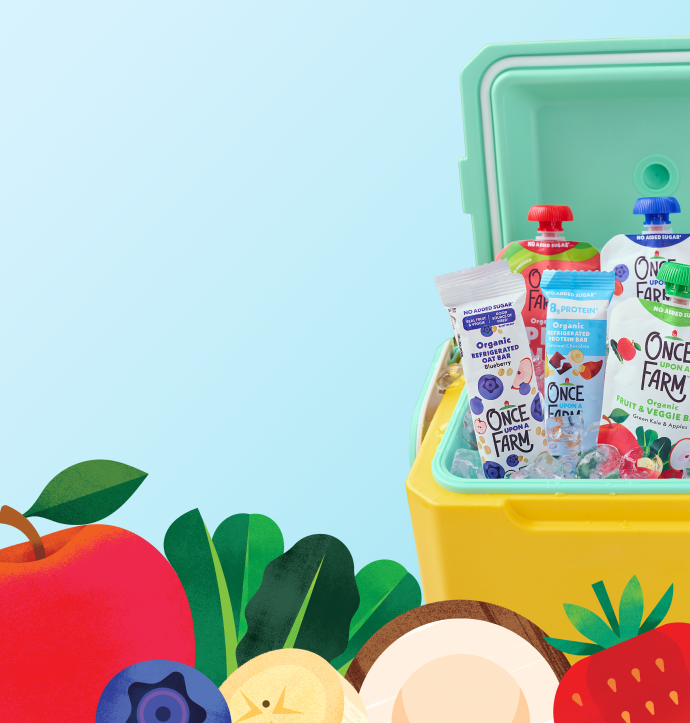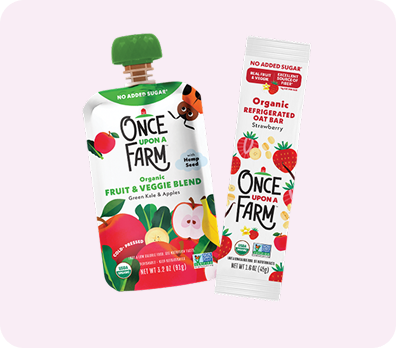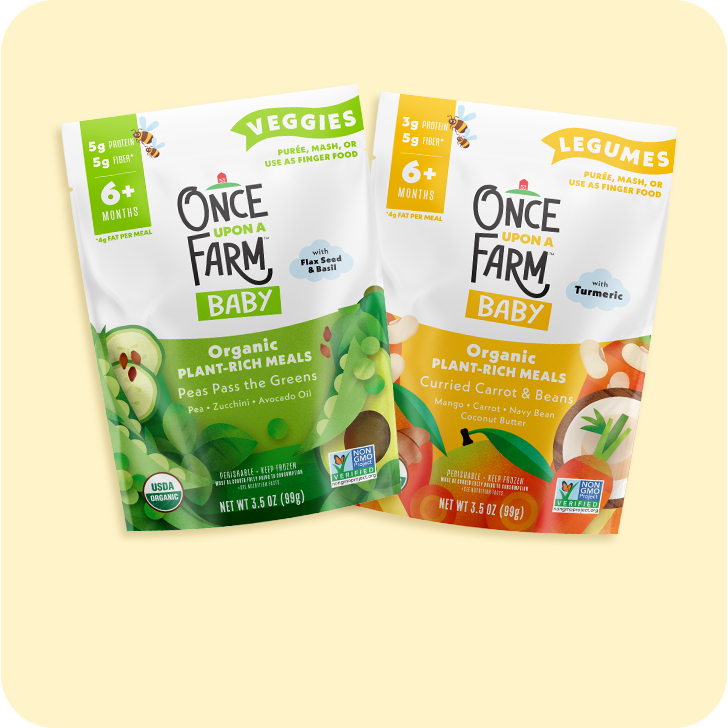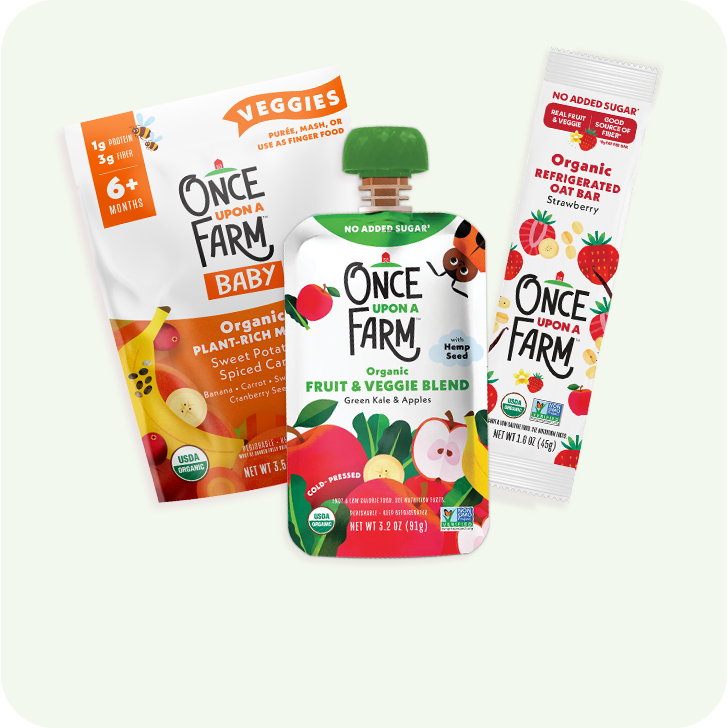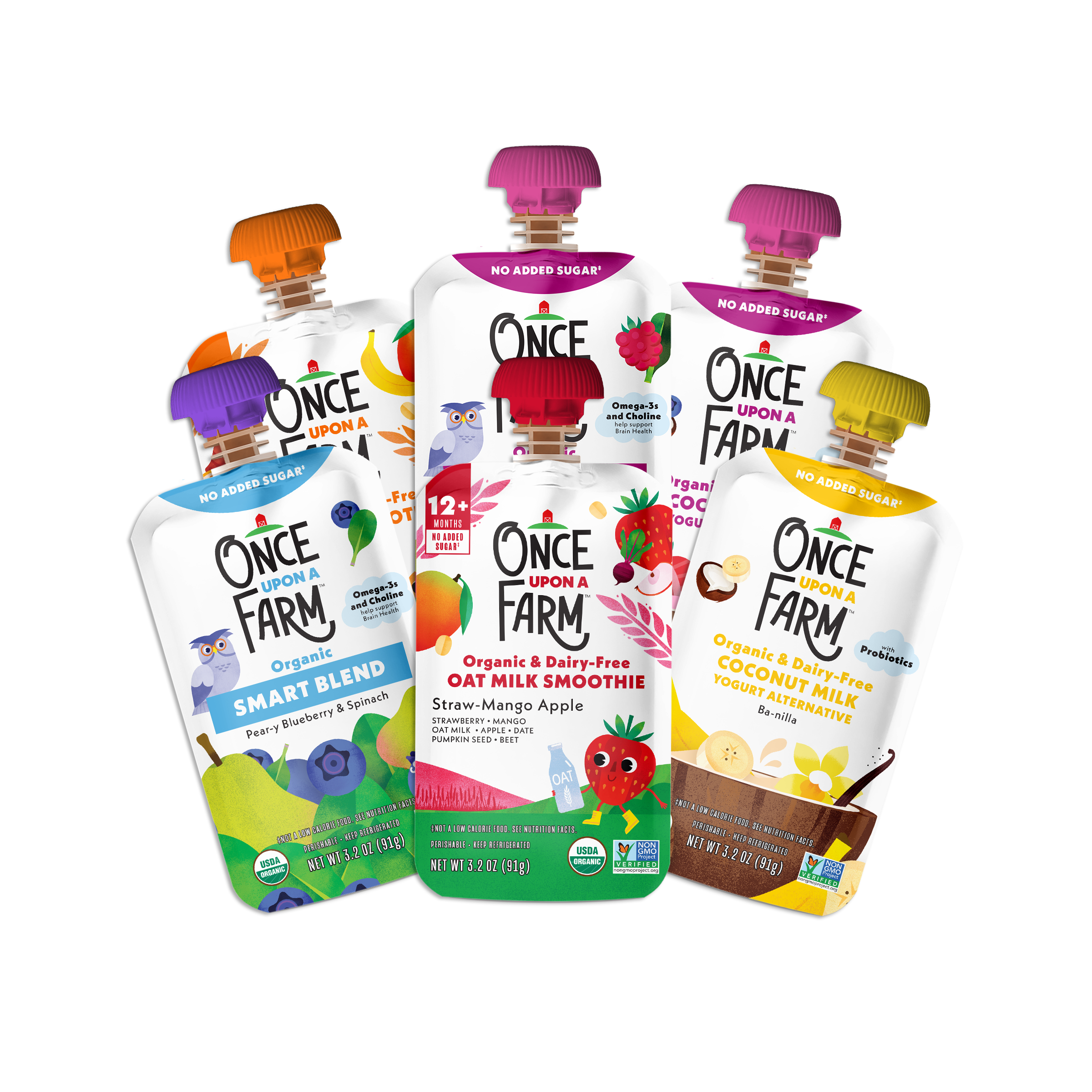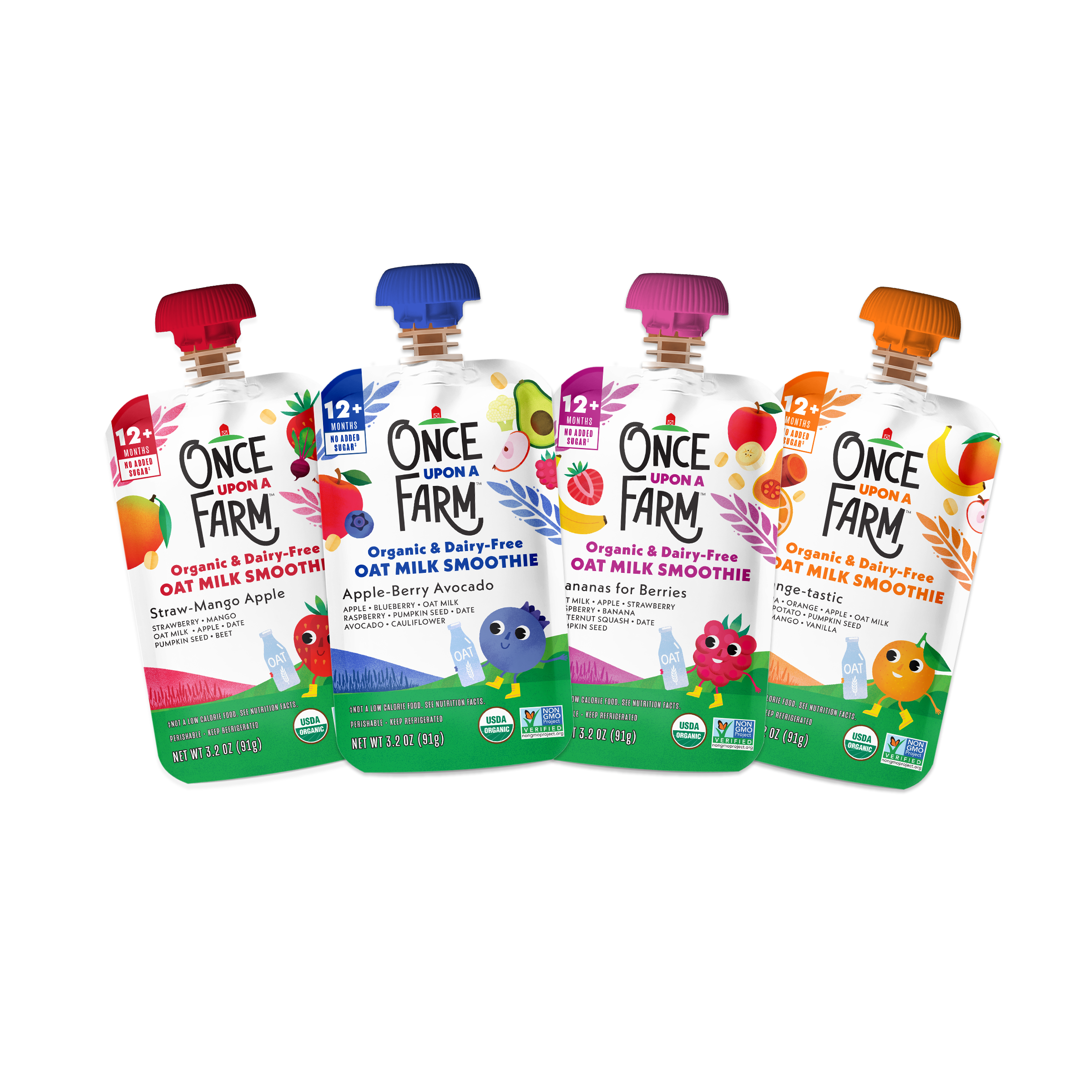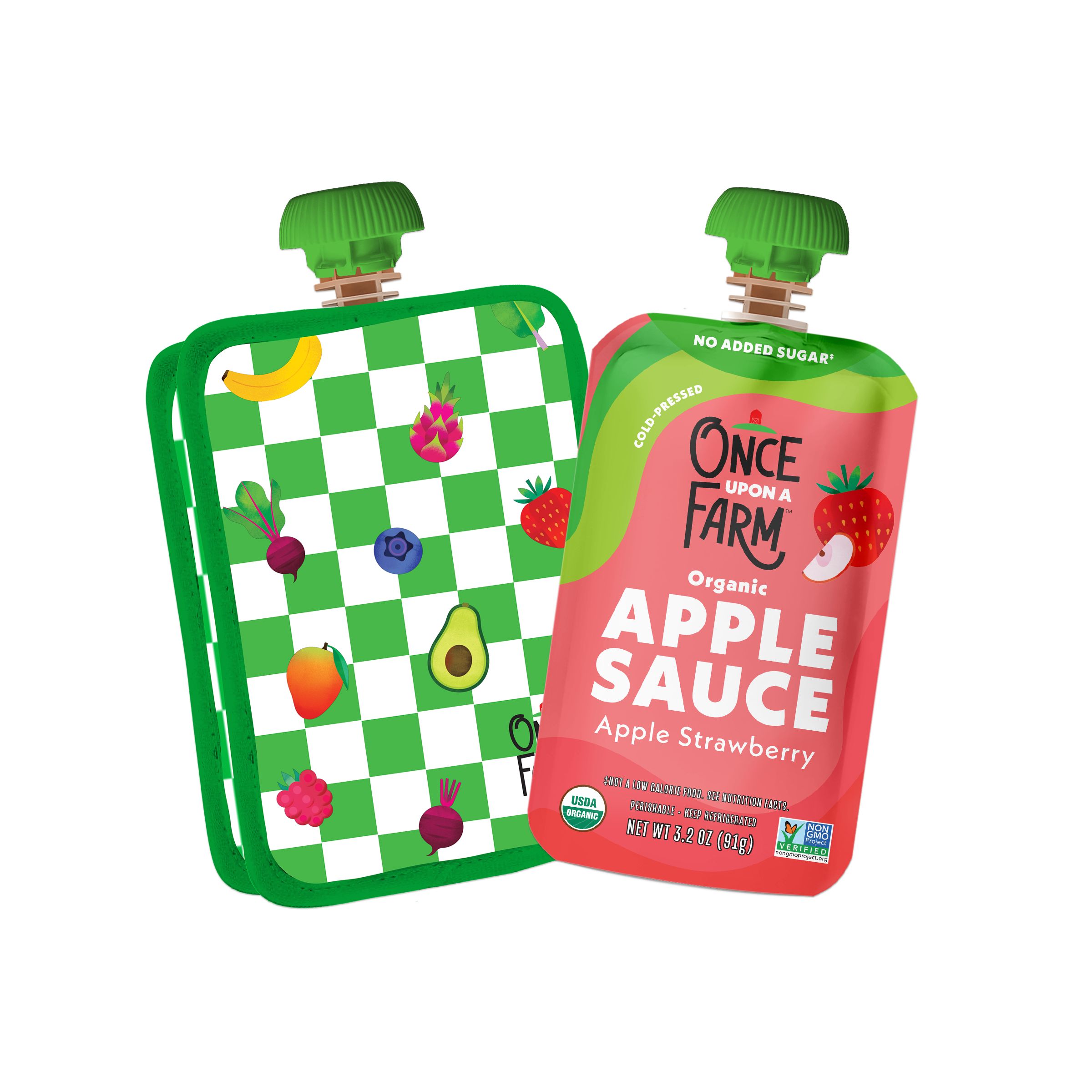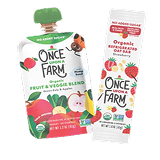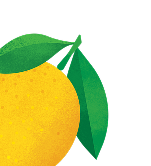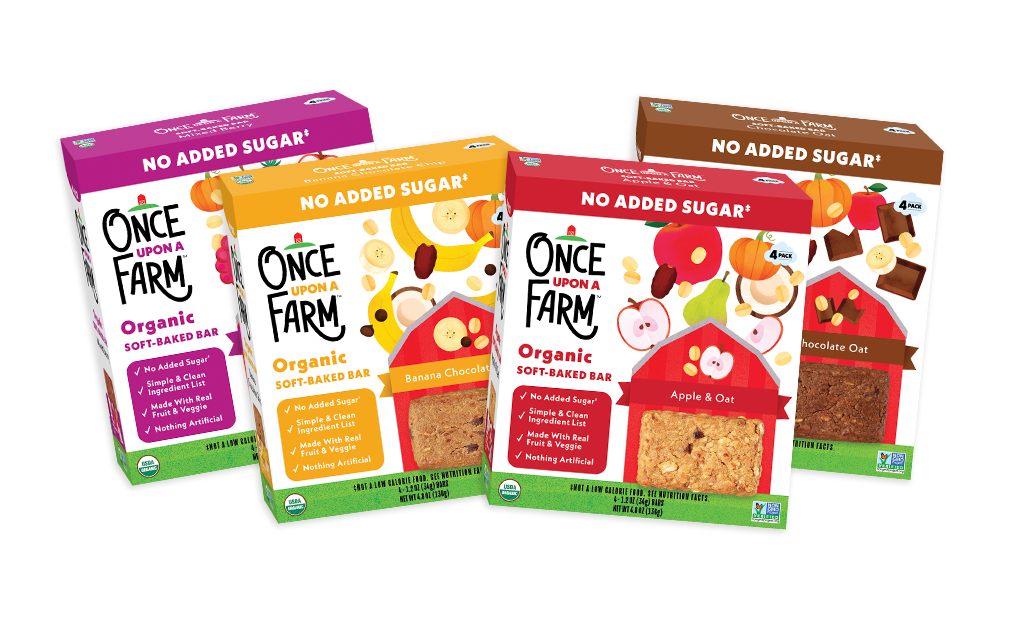The following was written by Krupa Playforth, MD, aka “The Pediatrician Mom”
I’m Dr. Playforth, a board-certified pediatrician and a mom of 3. My platform is built entirely around answering the questions pediatricians most often receive from parents about their child’s health—and for infants, one of the most common topics that comes up is starting solids. So today, I wanted to answer 4 of the most common starting solids I get.
1. How do I know my baby is ready for solids?
For an otherwise healthy, thriving infant there is no nutritional need for solid food before 6 months of age, according to the AAP. There are certain key signs of readiness to look for:
- GROSS MOTOR: an infant should have good head and neck control, and should be able to sit unassisted for several minutes. This implies their core strength and motor skills are where they need to be so they will be safe as they try solids.
- OROMOTOR: Most babies are bringing their hands and other objects to their mouth frequently by 6 months. They may also be practicing chewing and moving their tongue around on teething toys or their hands. This is a precursor to being able to self-feed.
In rare circumstances, a healthcare provider may recommend that a child start between 4–6 months, so always talk to your pediatrician if you are unsure.
2. How much milk should a baby have when starting on solids?
Before 12 months, the primary source of calories and nutrition is [breastmilk or formula]. This does not mean that solids are “just for fun”—on the contrary, we now know that exposure to a variety of foods, allergens and textures is essential for the development of oromotor skills, palate diversity, and even to prevent food allergies.
Particularly between 6–10 months, the vast majority of infants will continue to consume the same volume of milk that they consumed before. In fact, we recommend offering the milk about 45–60 minutes before solids to ensure their nutrient intake is optimized.
Between 10–12 months, some (but not all) infants may start to decrease the milk volume naturally, but it is essential to follow your baby’s cues on this front and to talk to your pediatrician if you become concerned about growth or feeding.
3. Should I flavor my baby’s food? What about salt or sugar?
It is a common misconception that babies require bland, unflavored food. As a general rule, we recommend avoiding added sugars and added salt in all children (but especially in the first 2 years), which is most commonly found in processed food. But adding some seasoning is a great choice. My favorites are cinnamon, paprika, basil, and garlic. Once Upon a Farm options are a great choice because they contain no added salt or sugar.
4. I’m worried my baby will choke! What suggestions do you have?
This is a common worry for many parents—so common that some may put off starting solids because they are fearful they won’t know what to do. I have 3 main recommendations to handle this:
- Never leave your child unattended. True choking is silent—it does not happen the way you see in movies. Always watch your child when they are eating, and make sure your child is seated in a safe eating environment (which means not giving them food in the car seat!).
- Know what to do. Infants can choke on food and non-food items, and they are at a higher risk once they’re on the move. Any caregiver who is watching or feeding a baby (regardless of whether they’re feeding purees or finger foods) should know how to handle a choking incident. Many hospitals offer CPR training programs that are worth doing for all parents.
- Prepare food safely. Particularly if you are giving your baby finger food, make sure it is cooked well and cut to the right size to minimize the choking risk. There are numerous programs available that can help guide you.
I hope this helps alleviate some of your fears as you begin what should be a new, exciting and FUN phase of parenting!

